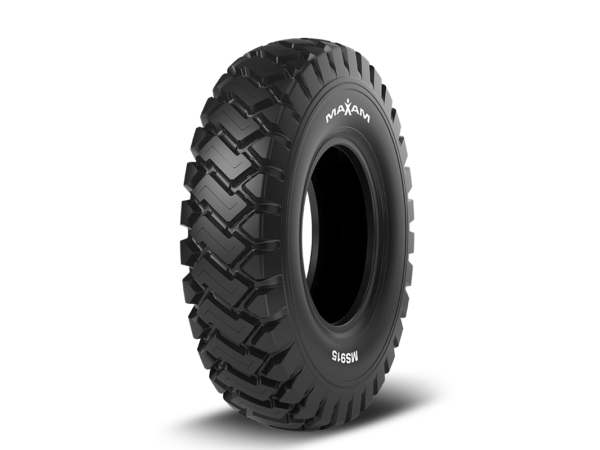 [tcb_logo href=’https://inquizity.com’ data-id-d=’13’ data-css=’tve-u-170155dc364′ class=” data-alt=” data-img-style=”]
[tcb_logo href=’https://inquizity.com’ data-id-d=’13’ data-css=’tve-u-170155dc364′ class=” data-alt=” data-img-style=”]Dispatch and Replenishment Planning
Replenishment Planning allows the creation of a responsive system that reacts rapidly to the needs of the market, such systems ensure high degree of service levels with the customers while simultaneously maintaining low levels of inventory across the Supply Chain.Schedule a FREE Demo
 The Replenishment Planning system marries the external Supply Chain Inventory with the Production / Procurement. Replenishment Planning allows the creation of a responsive system that reacts rapidly to the needs of the market, such systems ensure high degree of service levels with the customers while simultaneously maintaining low levels of inventory across the Supply Chain. After the Production plan gives the finished goods schedule which shows how the supply side inventory is likely to get built, the replenishment planning comes into picture. It takes into account the expected demand in the coming days/weeks, the current inventory in the various locations including in transit inventory, the supply side expected inventory from Production Plan / Purchase Orders. The trigger for Replenishment is through Stock Covers / Reorder Point levels, which considers parameters such as Safety Stock, Min / Max Inventory Levels, Lead Times, to arrive at an expected replenishment plan.
The Replenishment Planning system marries the external Supply Chain Inventory with the Production / Procurement. Replenishment Planning allows the creation of a responsive system that reacts rapidly to the needs of the market, such systems ensure high degree of service levels with the customers while simultaneously maintaining low levels of inventory across the Supply Chain. After the Production plan gives the finished goods schedule which shows how the supply side inventory is likely to get built, the replenishment planning comes into picture. It takes into account the expected demand in the coming days/weeks, the current inventory in the various locations including in transit inventory, the supply side expected inventory from Production Plan / Purchase Orders. The trigger for Replenishment is through Stock Covers / Reorder Point levels, which considers parameters such as Safety Stock, Min / Max Inventory Levels, Lead Times, to arrive at an expected replenishment plan.Features and Key Benefits
Model Details
- Statistical methods to dynamically and continuously calculate Reorder points at different levels of the Supply Chain
- Continuously checks the inventory against the Reorder Points
- Creates the Replenishment Plan Order considering Dispatch Frequency & Inventory Replenishment Strategy
- Such inventory from Factory / mother warehouse is dispatched to those depots/hubs that most need it
- In addition, the tool allows for categorization of different types of SKUs so that different Dispatch strategies can be adopted
Features
- Various options for movement of materials that gives flexibility to move SKUs
- Search options like location, stores, bins, pallets, etc.
- Material management logics like FIFO, weight, location, or any other custom logic built
- This Replenishment Plan is further consolidated / fragmented to consider sales considerations such as OTIF and logistics considerations such as FTL and Truck choices.
- The output of this exercise is a Dispatch Plan. It is possible to further create the Truck Loading Plan.
- In a Pull System, the Replenishment Plan can also trigger a requirement for the Production unit is connected to the Supply chain inventory through a factory buffer stock.
Benefits
- It allows both Push based as well as Pull based Inventory Planning.
- The tool allows various strategies for Replenishment as well as Replenishment at different echelons of the supply chain.
- Oversee complete flow of materials and products, right from your smartphone
- The product also allows rule-based truck loading/containerization based one or two fill parameters
- Eliminate countless hours of work on data entry, manual tasks, and more
Case Studies
Crompton
 Optimization of Dispatches to minimize costs
Optimization of Dispatches to minimize costsATG
 Enhanced visibility and transparency via S&OP suite for a consumer electrical manufacturer
Enhanced visibility and transparency via S&OP suite for a consumer electrical manufacturerRelated Products
S Suite
Supply Chain Allocation Planning
A Suite
V Suite
I Suite
Address
3rd Floor Stellar tower,
Sion Panvel Road,
Opposite K Star Mall,
Chembur, Mumbai,
Maharashtra 400071
Contact
+91-9833257112
Copyright
Copyright @ Inquizity Metanoia Pvt. Ltd.
Schedule a FREE Demo
Demand Planning
SOLUTIONS DESIGNED TO SYSTEMATICALLY ESTIMATE MARKET DEMAND
Be it New Product Development, Planning, or Promotions, implementing collaborative Demand Forecasting provides you with statistical / ML / AI data to support the course of action in the medium term.
Description
Demand Planning comprises key step of arriving at a baseline number. This is done by using Statistical and ML/AI methods. The Module applies various methods of forecasting on the historical Sales data to arrive at the forecast in the coming months. The forecasting can be done at various levels such as SKU-Depot / Brand-Region / SKU Region
Benefits
Features
Multiple Heirarchy
Forecasting at multiple Hierarchies e.g. SKU-Location, SKU-Sales Office, Brand-Channel etc.
Supersession
Supersession that allows linking of old to new items to provide meaningful continuity in history for effective forecasting new product
Statistical Methods
Variety of Forecasting Techniques using efficient Python to take care of different distributions such as seasonality, promotions etc. Also allows for Outlier Detection
Classification of Products
Dynamic Classification of Products across Runner / Repeater / Stranger using different parameters of frequency, variability etc.
ML / AI Methods
Selection of different AI / ML Methods for cases where ML can be implemented
Choice of Error Methods
Selection of Techniques based on different Error Measures with ability to add custom Statistical Techniques
Some Customer Cases
On the quantitative side, we have integrated the powerful Statistical and Graphical Modelling libraries of Python. We have also connected to ML / AI libraries of WML / Google / AWS to enables the application of a variety of statistical and ML/AI techniques for different situations
Consumer Electrical Company
Enhanced visibility and transparency via S&OP suite for a consumer electrical manufacturer

Speciality Tyre Company
Implemented Demand Forecasting and Demand Aggregation for the smooth function for the manufacturing unit

